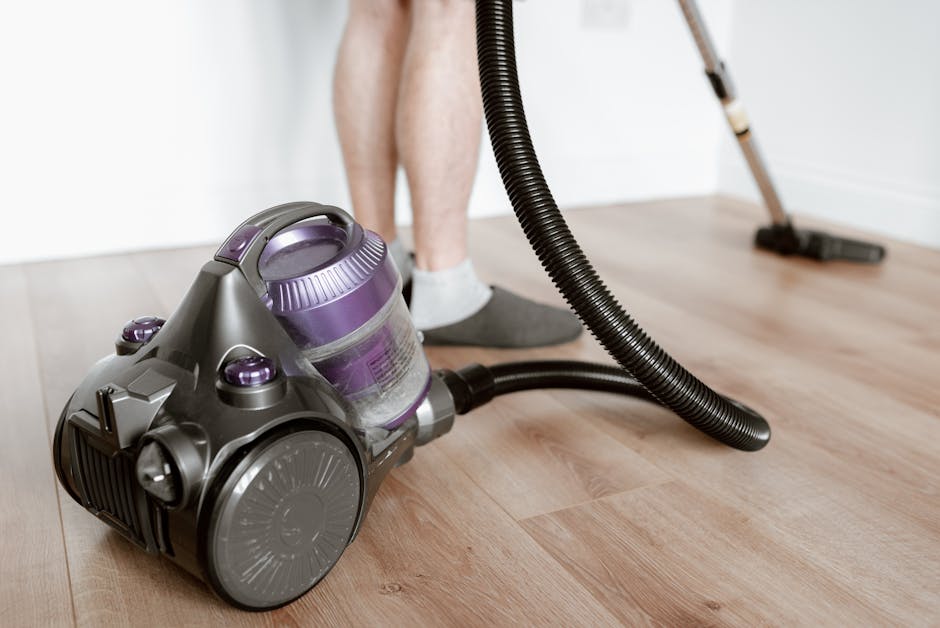Area Coverage
Commercial vacuuming often covers larger surface areas compared to residential vacuuming. When it comes to cleaning vast spaces like office buildings, warehouses, or retail stores, commercial vacuums are the go-to choice. Their ability to efficiently clean expansive areas in a shorter time makes them essential for businesses that prioritize cleanliness and hygiene.
On the other hand, residential vacuums are designed for smaller, more confined spaces like homes or apartments. The size and maneuverability of residential vacuums cater to the needs of homeowners seeking to maintain the cleanliness of their living areas without the need for heavy-duty machinery. So, depending on the area you need to clean, the choice between commercial and residential vacuuming becomes clear.
The primary distinction in area coverage between commercial and residential vacuuming lies in the scale of operation. Commercial spaces demand efficient and powerful cleaning equipment to maintain cleanliness effectively, while residential settings benefit from smaller, more agile vacuum cleaners tailored to individual spaces.
When deciding between commercial and residential vacuuming, consider the size of the area you need to clean. For vast spaces with high foot traffic, commercial vacuuming provides the necessary coverage and power. Conversely, for smaller, more intimate spaces like homes, residential vacuuming offers the perfect solution for everyday cleaning needs.
Durability and Power
Commercial vacuums are built for longer operational hours and more intense use, requiring more power and durability. These vacuums are engineered to withstand rigorous cleaning tasks in commercial settings, where dirt and debris accumulation is higher, and the need for consistent performance is paramount.
In contrast, residential vacuums are designed for lighter use and shorter cleaning sessions typical of household cleaning. The power and durability of residential vacuums are tailored to meet the needs of individual homeowners seeking to maintain clean living spaces without the heavy-duty requirements of commercial cleaning equipment.
When it comes to durability and power, commercial vacuuming surpasses residential vacuuming due to its robust construction and higher performance capacity. The demanding nature of commercial cleaning necessitates vacuums that can handle prolonged use and maintain optimal suction power throughout, making commercial vacuums the preferred choice for businesses.
Choosing between commercial and residential vacuuming depends on the intensity and frequency of use. For establishments with high traffic and heavy soiling, the durability and power of commercial vacuums are indispensable. Conversely, homeowners seeking reliable cleaning solutions for periodic use find the durability and power of residential vacuums more than adequate for their needs.
Filtration Systems
Commercial vacuums typically have more advanced filtration systems to handle higher levels of dirt and contaminants. The filtration systems in commercial vacuums are designed to trap and contain a wide range of particles, ensuring that indoor air quality remains high in commercial spaces where cleanliness is essential.
Residential vacuums, while effective for everyday cleaning, may not feature the same level of advanced filtration as their commercial counterparts. The filtration systems in residential vacuums are tailored to manage common household dirt and allergens, catering to the cleaning needs of individual homes without the need for industrial-grade filtration.
The significant disparity in filtration systems between commercial and residential vacuums stems from the different cleaning requirements of each setting. Commercial spaces demand superior filtration to maintain hygienic environments, while residential settings prioritize convenience and everyday cleaning needs over advanced filtration technology.
Deciding between commercial and residential vacuuming involves considering the filtration needs of the space being cleaned. For environments where air quality is critical, such as office buildings or healthcare facilities, the advanced filtration systems of commercial vacuums offer enhanced protection against contaminants. In contrast, households looking for efficient cleaning without intricate filtration systems can rely on the simpler yet effective filtration of residential vacuums.
Maintenance and Service
Commercial vacuums often require more frequent maintenance and professional servicing due to heavy use. The rigorous cleaning demands placed on commercial vacuums necessitate regular maintenance to ensure optimal performance and longevity. Professional servicing is also crucial to address any issues promptly and maintain the efficiency of these high-use machines.
In comparison, residential vacuums typically require less frequent maintenance and servicing, given their lighter usage patterns. Homeowners can often perform basic maintenance tasks themselves, such as cleaning filters or unclogging hoses, to keep their residential vacuums in good working condition. Professional servicing is less common owing to the lower intensity of residential cleaning needs.
Maintenance and service requirements play a significant role in distinguishing commercial from residential vacuuming. The demanding cleaning environments of commercial spaces necessitate proactive maintenance and expert servicing to uphold the performance of commercial vacuums. In contrast, residential vacuuming involves simpler maintenance tasks that can be managed by homeowners without the need for regular professional servicing.
When making the choice between commercial and residential vacuuming, consider the maintenance obligations associated with each. Businesses needing consistent cleaning performance must account for the regular maintenance and professional servicing required by commercial vacuums. On the other hand, homeowners seeking hassle-free cleaning solutions can rely on the lower maintenance needs of residential vacuums for their day-to-day cleaning routines.
Conclusion
Now you understand the key differences between commercial and residential vacuuming, allowing you to choose the right option for your needs.

